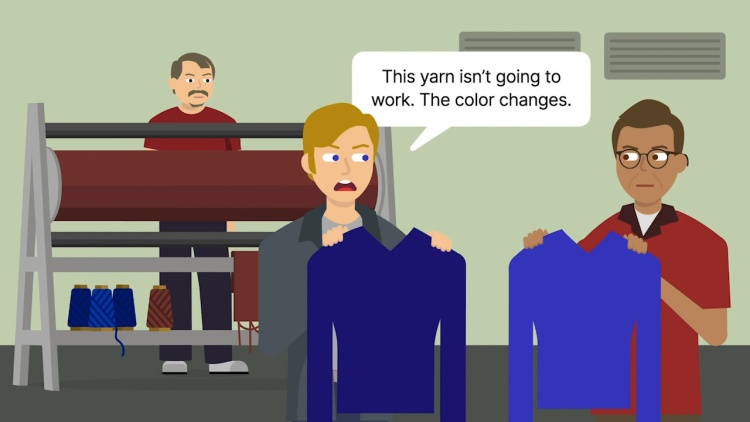Wilson Trading Corporation v. David Ferguson, Ltd.
Court of Appeals of New York
244 N.E.2d 685 (1968)
- Written by Mary Pfotenhauer, JD
Facts
Wilson Trading Corporation (Wilson) (plaintiff) sold yarn to David Ferguson, Ltd. (Ferguson) (defendant). Paragraph two of the sales contract provided that no claims relating to the quality or shade of the yarn could be brought after the yarn was knitted or processed or more than ten days after receipt of the yarn. Paragraph four stated that Wilson’s obligations were limited to delivering good, merchantable yarn. Wilson delivered the yarn, and Ferguson accepted the delivery. The yarn was then knitted into sweaters and washed, after which variations in the color of the yarn were discovered. According to Ferguson, this made the yarn unmerchantable. Ferguson refused to pay for the yarn, and Wilson sued for the contract price of the yarn. Wilson argued that Ferguson’s claim of a defect was barred because it was not raised before washing or processing the yarn as required under paragraph two of the contract. Ferguson argued that the contract’s time limit on bringing claims was unreasonable because the defect in the yarn could not be discovered until after the product was finished and washed. Special Term granted summary judgment in favor of Wilson. The Appellate Division affirmed. Ferguson appealed.
Rule of Law
Issue
Holding and Reasoning (Jasen, J.)
Concurrence (Fuld, J.)
What to do next…
Here's why 907,000 law students have relied on our case briefs:
- Written by law professors and practitioners, not other law students. 47,100 briefs, keyed to 996 casebooks. Top-notch customer support.
- The right amount of information, includes the facts, issues, rule of law, holding and reasoning, and any concurrences and dissents.
- Access in your classes, works on your mobile and tablet. Massive library of related video lessons and high quality multiple-choice questions.
- Easy to use, uniform format for every case brief. Written in plain English, not in legalese. Our briefs summarize and simplify; they don’t just repeat the court’s language.





